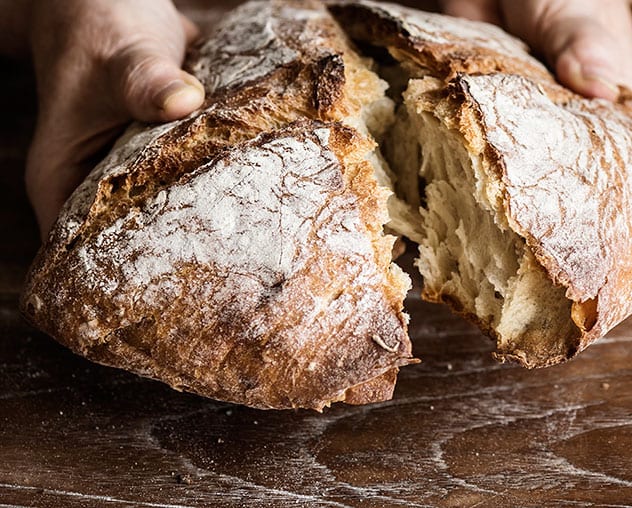What makes sourdough different?
Unlike your typical store-bought loaf, sourdough is made from fermented yeast. The ‘sour’ comes from a sourdough starter, a mixture of flour and water which develops into a culture of naturally wild yeast and bacteria. This fermentation process results in lower amounts of gluten and can release more fibre which encourages the growth of good bacteria.
So given its health benefits, should you be cutting up a slice every day? Not necessarily, say experts. “Sourdough is a better form of white bread,” Dr Will Bulsiewicz told Bustle. But while it has positive qualities when it comes to gut health, the refined grains can have a negative affect.
For people who eat a lot of sourdough, the refined flour content could damage your gut as they are absorbed into the small intestine rather than digested slowly. “The result is a dramatic loss of gut microbial diversity and the rise of inflammatory bacteria that love simple carbohydrates,” says Bulziewicz.
This isn’t to say sourdough is off the table. “One simple way of increasing the dietary value of sourdough is to bake with a variety of grains,” says Vanessa Kimbell from The Sourdough School. “Adding other grains to your loaves, maybe some rye or spelt, feeds different microbes and can help to maintain microbial diversity.”
Reach for the rye
Rye sourdough, in particular, has shown to have a large amount of gut-healthy substances such as branched-chain amino acids.
A study from the University of Eastern Finland saw a link between rye sourdough and better blood sugar levels, as well as a lower risk of cardiovascular diseases. “It’s a good idea to avoid unnecessary antibiotics and feed gut microbes with optimal food – such as rye,” says Researcher Ville Koistinen.
The differences between gut bacteria
While the research around sourdough and gut health seems promising, it’s important to note that gut microbiomes are quite different across individuals and not everyone reacts to flours the same way. One small study in 2017 on the effects of wholemeal sourdough found that half of participants showed positive microbiome effects from eating the wholemeal bread, while the other half saw white supermarket bread having a better effect on their gut health.
It may be too soon to tell whether sourdough is overall better for your gut, but if you’re likely to reach for a loaf, it seems rye or wholemeal sourdough is the way to go.




